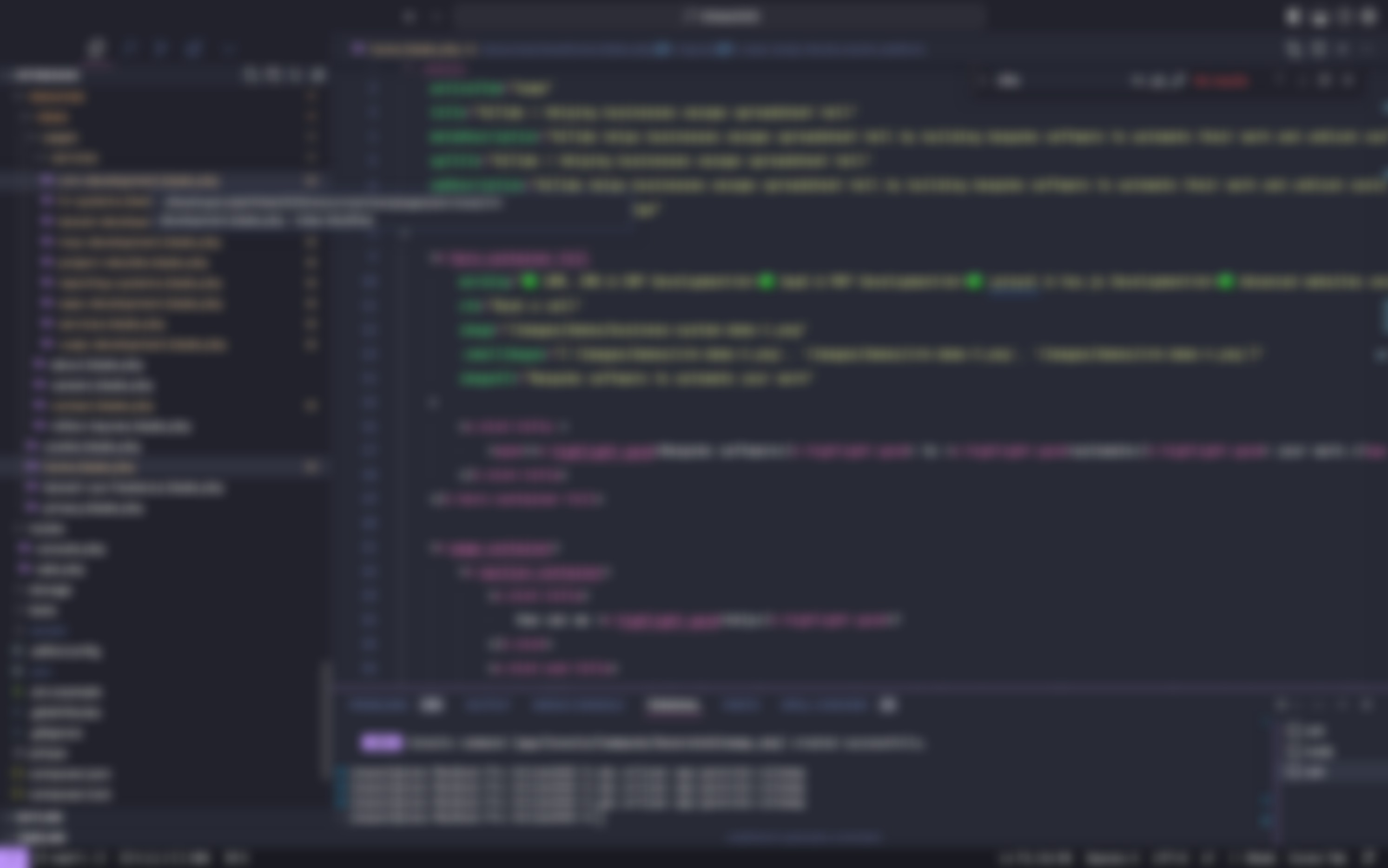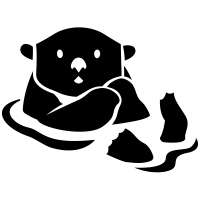What is Laravel?
Learn what Laravel is and why it's my framework of choice. Discover how this PHP toolkit enables rapid development and protects your investment with widespread developer adoption.

Joe Peel

What exactly is Laravel?
Just wanted to share with you what Laravel is - it's a word you would've seen mentioned on my website. It's in the menu, I've got a section dedicated to it, and you may have heard developers or software agencies mention it or seen it online.
Laravel is a web framework written in PHP, which is a programming language. A web framework is like a big toolkit that allows us to build things quickly - and when I say things, I mean websites, web applications, and web software.
From simple to complex
Laravel can be used to build things both big and small. Simple things like my website is built on Laravel, right through to complicated enterprise-grade applications. It's incredibly versatile, which is one of the reasons I've stuck with it for so long.
What makes Laravel special
Laravel has loads of really cool things built in that allow us to do things like:
- Set up login pages and registration systems
- Create admin areas for managing content
- Connect with AI services
- Integrate with other third-party software applications
- Build comprehensive reports
- Enhance security across the application
- Deploy onto the cloud platforms
It's not quite a button press, but it's very easy to configure these features. The alternative to not using a framework like Laravel would be to write everything from scratch, which would be extremely time-consuming.
Why frameworks matter for delivery
There's no way I could meet an 8 to 12-week delivery timeline like I state on my website without using a framework like Laravel. It provides the foundation that lets me deliver MVPs in 8 weeks rather than spending months building basic infrastructure.
Laravel isn't the only framework out there that can build enterprise-grade software and applications. There are lots of other ones, but Laravel is the one I've been using for a long time, and it's very well suited to quick delivery for SaaS products. This is particularly important when I need to keep features focused and avoid unnecessary complexity.
When you might not want Laravel
Now, you may not want to use Laravel for things like large-scale banking applications - without getting into technical details, it probably wouldn't be a good match for that level of scale and regulation. But for most software products, it really shines. It's got so much built-in that allows us to move very quickly.
The developer ecosystem advantage
Another big benefit is that Laravel is quite common among other software agencies. I'm not trying to promote the competition, and I'm not saying Laravel developers are ten a penny - there's not an abundance - but there is a reasonable number of other developers in the country who will be able to pick up a project developed in Laravel and competently add to it.
I think this is super important because if I disappeared, or if we parted ways or fell out or something - again, probably not going to happen, but if it did - there is some insurance. There's someone else you can go to who's going to understand the technology.
The technology lock-in trap
I'm making this distinction because I think it's quite important. I've come across it quite a few times where someone's got an app built in some ultra-obscure, funky Silicon Valley technology that no one's ever heard of. There might be 50 people in the country who could touch it, and most of them are going to be in demand, busy, and not available.
You want your project built in something that other people can touch and make changes to. It's just sensible business protection.
Laravel's technical strengths
Let me break down some of the technical advantages that make Laravel so powerful:
Rapid development: Built-in authentication, routing, and database management mean common features take hours, not weeks, to implement.
Security by default: Laravel includes protection against common web vulnerabilities like SQL injection, cross-site scripting, and CSRF attacks.
Elegant code: Laravel's syntax is clean and readable, making it easier to maintain and modify applications over time.
Rich ecosystem: Thousands of packages are available to extend functionality without reinventing the wheel.
Testing capabilities: Built-in testing tools ensure your application works as expected before launch.
Scalability: Laravel applications can grow from small startups to enterprise-level systems without major rewrites.
Real-world application
When I build applications for clients, Laravel's comprehensive feature set means I can focus on solving business problems rather than wrestling with technical infrastructure. Features that would take weeks to build from scratch are available immediately.
For example, setting up user authentication in Laravel takes about an hour. Building the same system from scratch could take weeks. That time saving translates directly into cost savings for clients and faster time to market. This efficiency is key to keeping projects within budget.
The quality factor
Laravel allows us to build applications both big and small quickly and to a high degree of quality. It's become the framework of choice for many software development agencies, and that's good for you to know.
Maybe you won't know all the technical details - you're going on my word - but the fact that your product would be written in this framework should be taken as a good thing. It's a comforting thing, not a risky thing.
Laravel in practice
Here's what Laravel enables in practical terms:
Week 1 of development: User authentication, basic admin interface, and database structure are already functional.
Week 2: Core business logic is implemented using Laravel's robust patterns and conventions.
Week 3-4: Advanced features like reporting, integrations, and notifications are added using Laravel's built-in tools.
Week 5-8: Polish, testing, and deployment using Laravel's comprehensive development tools.
This timeline is only possible because Laravel provides so much functionality out of the box.
Future-proofing your investment
Laravel has been around since 2011 and continues to evolve. It's actively maintained, regularly updated, and has a massive community of developers contributing to its improvement. Your investment in a Laravel application is protected for the long term.
The framework receives regular security updates, performance improvements, and new features. Applications built in Laravel today will continue to be maintainable and extensible for years to come.
The Laravel advantage
Laravel represents the sweet spot between rapid development and robust functionality. It's powerful enough for complex applications yet simple enough for quick development. It's popular enough to ensure long-term viability yet specialised enough to provide significant advantages over generic solutions.
For new SaaS products, Laravel offers everything you need: speed, reliability, scalability, and developer availability. It's not just a technical choice - it's a business decision that protects your investment and accelerates your time to market.
Getting started with Laravel
If you'd like to learn more about Laravel, see it in action, and ask questions, feel free to book a call. I like chatting about tech - I'm not a salesperson - but we can go through how Laravel would work for your specific project and what advantages it would bring to your business.
Want to chat about Laravel?
I like talking tech. Let's discuss how Laravel could work for your project.
Book a tech chatRelated Articles

How I can build your MVP in 8 weeks
Learn my proven approach to building MVPs in 8 weeks using the 80/20 principle and rapid app development techniques. Discover why launching lean beats feature-loaded products and how platform app development creates self-funding growth cycles.

My approach to SaaS architecture
Why I don't build for 10,000 users when you have zero. Learn my pragmatic approach to SaaS architecture using custom software development techniques that scales with your actual growth through web app development, not your dreams.

Why Laravel is perfect for new SaaS products
Discover why Laravel is the ideal framework for new SaaS products. Learn how it enables rapid development, scales with growth, and protects your investment with abundant developer talent.

About Joe Peel
Laravel developer and SaaS specialist helping businesses build scalable web applications. With years of experience in full-stack development, I focus on creating robust, maintainable solutions that drive business growth.
Learn more about me →